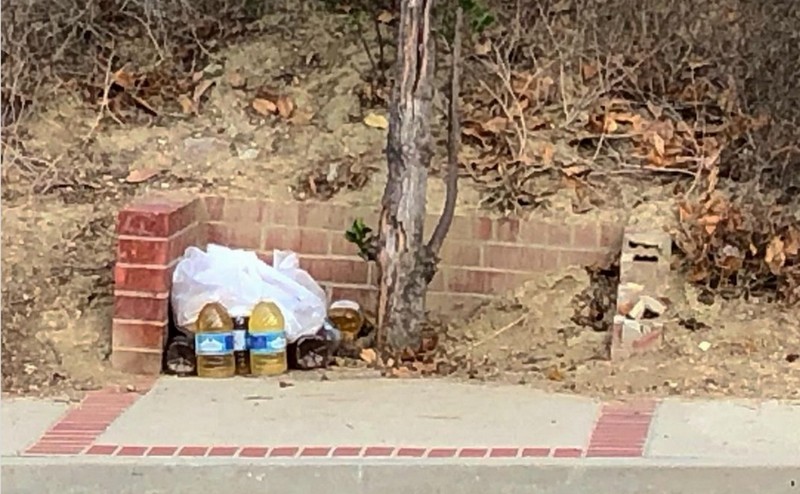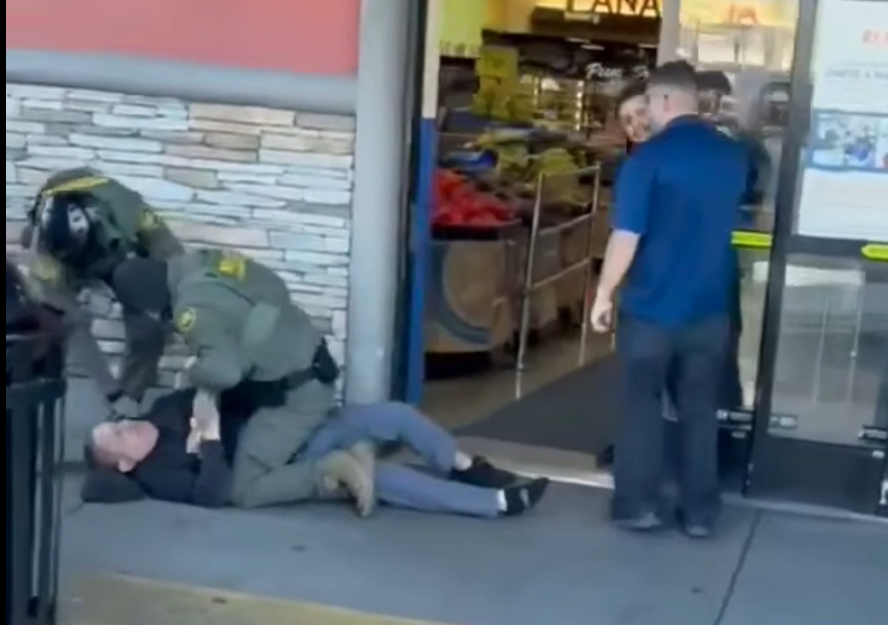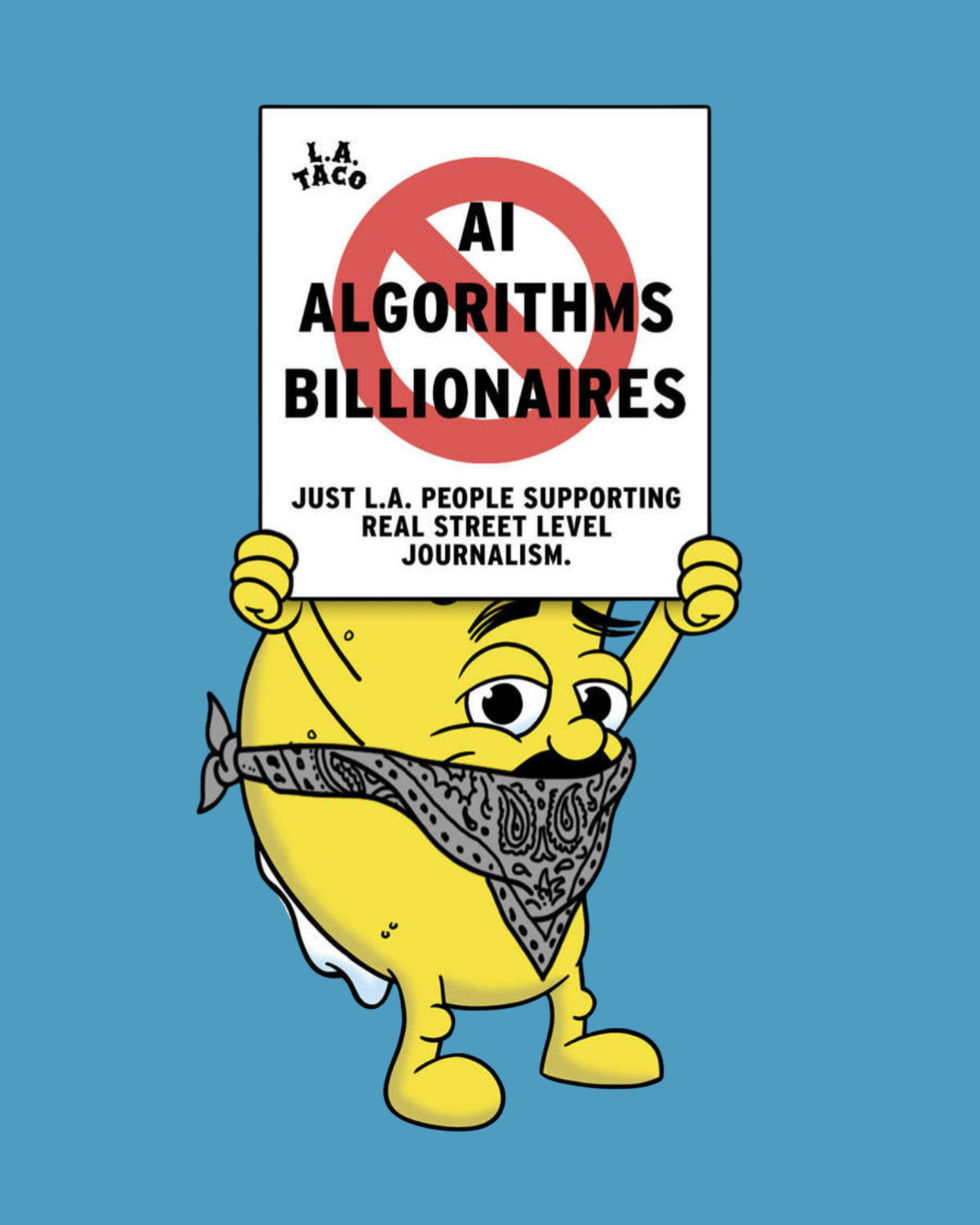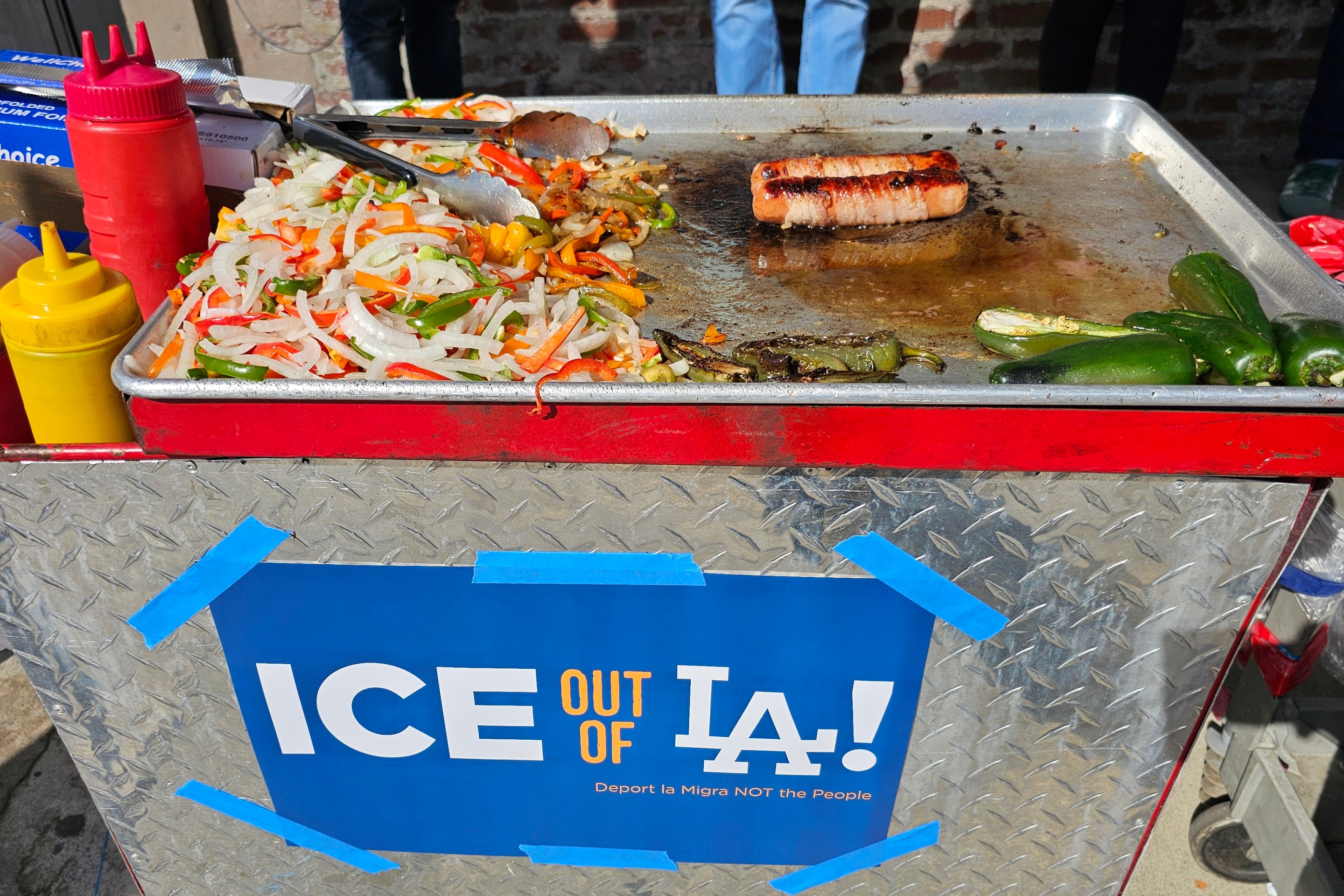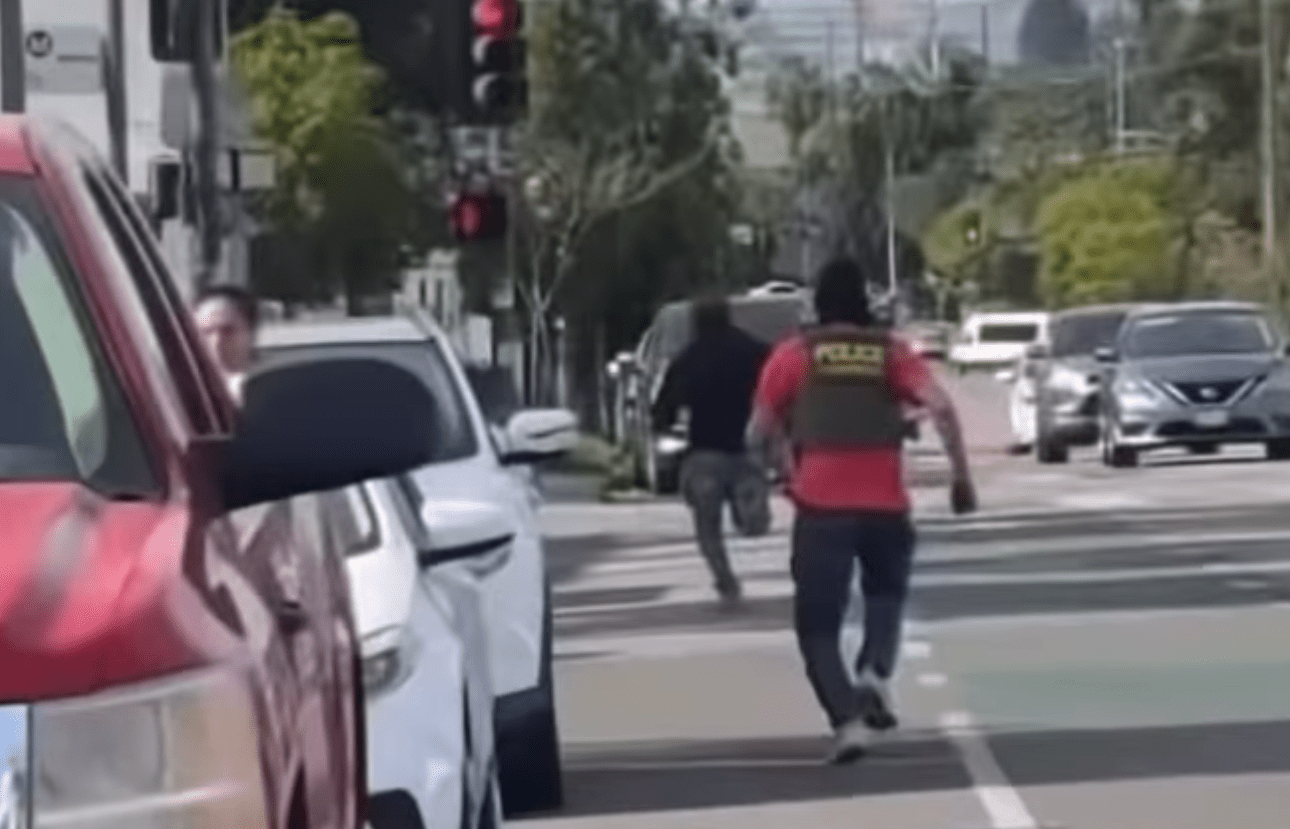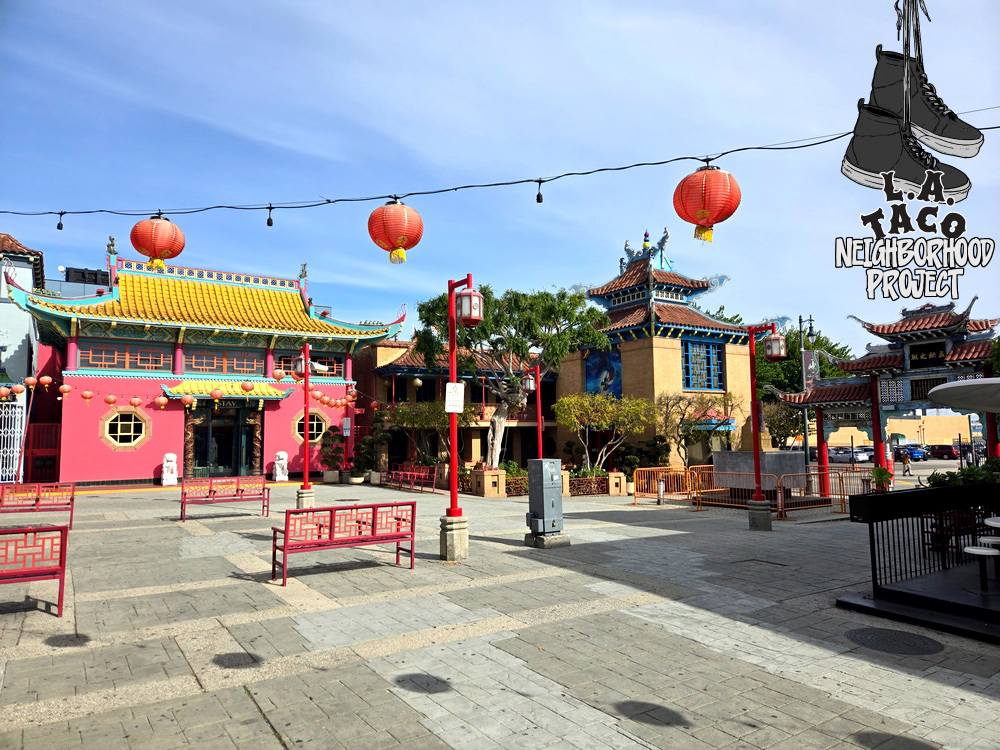Christian Aeschliman is pissed.
On October 23rd, the 44-year-old, SGV-raised resident of El Sereno was first confronted by what can only be described as 10 gallons of urine left inside plastic bottles along the sidewalk on Via Marisol, just up from Monterey Road on the 15-acre open space known as Elephant Hill.
That was when he placed his first call to L.A. Sanitation and Environment to see if someone could come over and remove the hazardous waste, which he learned from neighbors had been out there for to two to three weeks before he drove by and noticed them himself.
Five calls, more than an hour on the phone, and 20 days later, the bottles continue to fester under L.A.'s brutal sun there, through foggy days and unnatural autumn heat waves alike.
“[The urine] just been baking out there in the sun and turning different colors and stuff like that," Aeschliman tells L.A. TACO. “It’s really gross.”
Aeschliman, who has lived in the neighborhood since 2015, is no stranger to encountering hazardous waste illegally dumped on Elephant Hill. He’s been instrumental in forming volunteer neighborhood clean-up crews to address the continual problem of "thousands of pounds of trash" left behind by polluters in the area. The conservation group goes by the name Heroes of Elephant Hill and has its own Instagram account, which details the frustration of having "an illegal dumping free-for-all area" that L.A. Sanitation chooses to ignore in a recent post about the pee.
“It’s like a free-for-all for illegal dumping,” Aeschliman says. “Because L.A. Sanitation won’t go up there. Even though everybody else can, they just won’t go up there and pick up all the garbage. I’ve gotten really into doing clean-ups… but [the area] just keeps refilling.”
One of the problems Aeschliman cites is that city sanitation won’t pick up waste left at locations that don’t have addresses. Elephant Hill is considered “off-road,” meaning trash collectors refuse to ascend the hill, though he's seen Corollas and Honda Civics up there. During volunteer clean-ups, Aeschliman and his cohorts have to bring the recovered trash down to the street so that it can be picked up.
He suspects the clean-up crews aren’t about to go exploring and looking for the wayward urine, which he imagines was probably left there by someone living nearby in an RV or car. But it's really the way the system is set up that is the problem.
“All illegal dumping happens, not at addresses, but at places without addresses,” he notes. “So they set themselves up for failure. I feel like this is an easy win for them. This is piss. It’s been out there for a long time. This should be really easy for them to do. And it’s not. It’s a sign of incompetence.”
Aeschliman’s volunteer cleanup squads are accustomed to cleaning up large amounts of trash on Elephant Hill. He feels the support of his local chapter of Council District 14, and has a great relationship with El Sereno Area Director, Julio Torres, who has continually helped him with city funding for his clean-up efforts in the past. Torres has even stepped in to offer to help clean the urine up.
“I said 'let’s just wait until at least today,'” Aeschliman says. “Because I want L.A. City Sanitation to do it. It’s on a city street. But they won’t do it.”
Likewise, he’s considered removing the urine himself, much as he and his fellow Heroes of Elephant Hill do with much of the neighborhood's illegally dumped trash.
“I do this all the time,” he says. “The back of my car is all messed up because I’m always picking up trash. But I just don’t want to risk them cracking and putting piss everywhere. Who knows how long they were in the sun before? I could pour them out, but that’s really gross. A lot of people walk past and it never rains here, so it would smell for… months maybe?”
The calls Aeschliman has placed have so far been similarly frustrating. City sanitation answered his first call with a promise that it would be picked up within a week. Seeing the bottles still there a week later, he called again, and was told they had already been picked up.
“I said, ‘no, it hasn’t because I’m sitting right in front of it,’” he says.
That was November 4th and he’s been following up ever since.
“Every time, it’s like reinventing the wheel. They’re like, ‘Oh, where is it?’ And ‘oh, it’s been assigned to somebody.’ It’s just weird. They need to just come pick it up.”
Today Aeschliman is contemplating making a sign that bears the sanitation department’s logo, to place near the bottles in the hopes of calling attention to the lingering human waste. He's crossing his fingers that this could finally push the powers that be to take notice of the situation.
“It makes me upset because the system is not working,” he tells TACO. “I am not anti-government at all. I have a lot of faith in public institutions. I just want them to work better. And I wish this worked better.”
